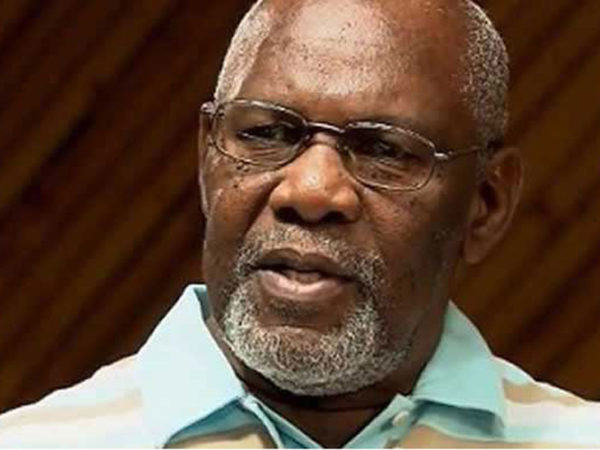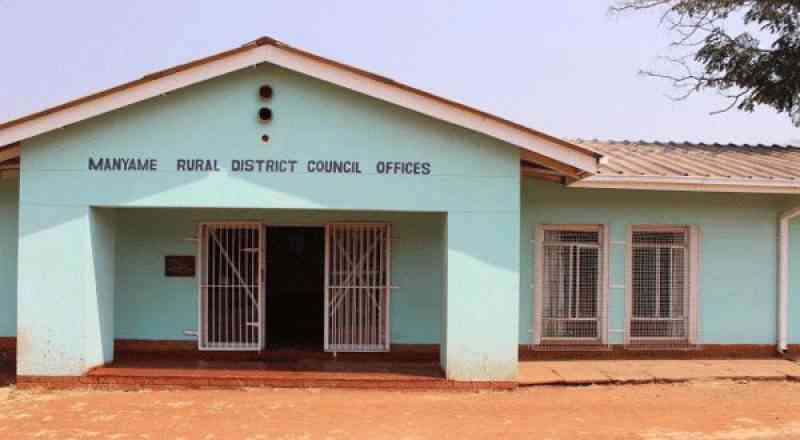
OPPOSITION Zapu leader Dumiso Dabengwa has claimed that President Robert Mugabe would have remained an ordinary teacher and political nonentity had he not been recruited and catapulted into the limelight by the late former Vice-President Joshua Mqabuko Nkomo during the early days of nationalism.
BY SILAS NKALA

Addressing delegates during Nkomo’s Centenary Memorial lecture at the University of Witwatersrand in Johannesburg South Africa on Saturday, Dabengwa said it was ironic that Mugabe later plotted Nkomo’s downfall shortly before and after Independence.
“Nkomo recruited Robert Mugabe into nationalist politics. Nkomo catapulted Mugabe into national prominence during the NDP (National Democratic Party) and later Zapu. Mugabe had been working as a teacher in Ghana when Nkomo paid visits to that country for events such as the All-Africa People’s Congress in 1958,” he said.
“When Nkomo was exploring the acceptability of Mugabe into the NDP, he sent and instructed Ackim Ndlovu and me (Dabengwa) to meet Mugabe at the Bulawayo Airport and take him to Nkomo’s home in Pelandaba. Mugabe was later introduced to the party members at a rally in Bulawayo, and he became the NDP’s secretary for information and publicity.”
The former Zipra intelligence supremo said Zapu was formed after NDP was banned by the colonial regime in 1960.
“This party was formed when I was serving a six-month sentence at Grey Street Prison in Bulawayo for making subversive statements after riots and skirmishes that were named by their war cry, Zhii!!!,” he said.
“Nkomo continued to be the president of the new party, Zapu, and Mugabe then became the secretary-general, (James) Chikerema and George Nyandoro were still in detention in Gokwe where they were kept for four years after the banning of the ANC). Heightened political activity by the nationalist movement led to the initiation of talks between Southern Rhodesian government and Zapu to discuss electoral reforms amongst other issues that would lead to “one man one vote.”
- Chamisa under fire over US$120K donation
- Mavhunga puts DeMbare into Chibuku quarterfinals
- Pension funds bet on Cabora Bassa oilfields
- Councils defy govt fire tender directive
Keep Reading
He said Nkomo later announced the rejection of the Southern Rhodesian Government proposals which frustrated attainment of majority rule. “Thus the talks collapsed. At the conference to report on the collapse of the talks, the youths were very angry and decided there should be no further negotiations with the Southern Rhodesian regime.
This is when Nkomo authorised the youths to engage in civil disobedience activities. Some of us understood that to include violence and sabotage, leading to Zapu being banned in December 1962. After the banning of Zapu, the leadership decided that forming parties only for them to be banned was costly and futile. They opted to continue resistance without forming another party,” Dabengwa said.
“The resolve not to form another party and to consider a government in exile was made complex by the formation of a splinter party in 1963: the Zimbabwe African Union (Zanu) under the leadership of (the late) Reverend Ndabaningi Sithole, but including others like Robert Mugabe, (late) Enos Nkala, Leopold Takawira and Herbert Chitepo.”
He said Nkomo responded by calling for a special congress at Cold Comfort Farm near Harare which resulted in the re-affirmation of the decision not to form another party but went on to set up the People’s Caretaker Council (PCC).
Dabengwa said Chikerema, Nyandoro and Daniel Madzimbamuto at this point resumed their political activity because they had been released from detention.
“Nkomo appointed Chikerema to head a department that was called “Special Affairs” to oversee the training and deployment of cadres to infiltrate the country and fight the Rhodesian regime,” he said.
“Nkomo had become convinced by arguments from the youths to upgrade our civil disobedience by getting capacity to challenge the oppressive machinery of the Rhodesian regime. The logical step was to train for sabotage operations and later to embark on training for armed struggle. I was among the youth who were recruited to go outside the country for training with the likes of Ackim Ndlovu, Ethan Dube, Ambrose Mutinhiri and others.”
He said Zapu external office in Lusaka under Chikerema included Jason Ziyapapa Moyo, George Silundika, Nyandoro, Edward Ndlovu and later on Jane Ngwenya. He said Nkomo and the rest of the executive had been arrested and they spent the best part of 11 years either in Gonakudzingwa or Whawha as political detainees.
“PCC (ZAPU) and Zanu detainees were only released from detention to facilitate preparation for talks in Zambia that were meant to bring about a ceasefire. These talks which were eventually held were being brokered by Zambia’s Kenneth Kaunda and South Africa’s PW Botha, in a train which was parked on the Victoria Falls bridge.
Participants in these talks were Zapu, Zanu, and the African National Council (ANC of (the late) Bishop Muzorewa) versus the Rhodesian regime. When these talks failed, both Nkomo and Mugabe decided to remain outside the country and pursue the armed struggle,” he said.
Dabengwa said Mugabe and his gang later towards independence became untrustworthy to Nkomo by grabbing top party leadership positions ahead of him.











